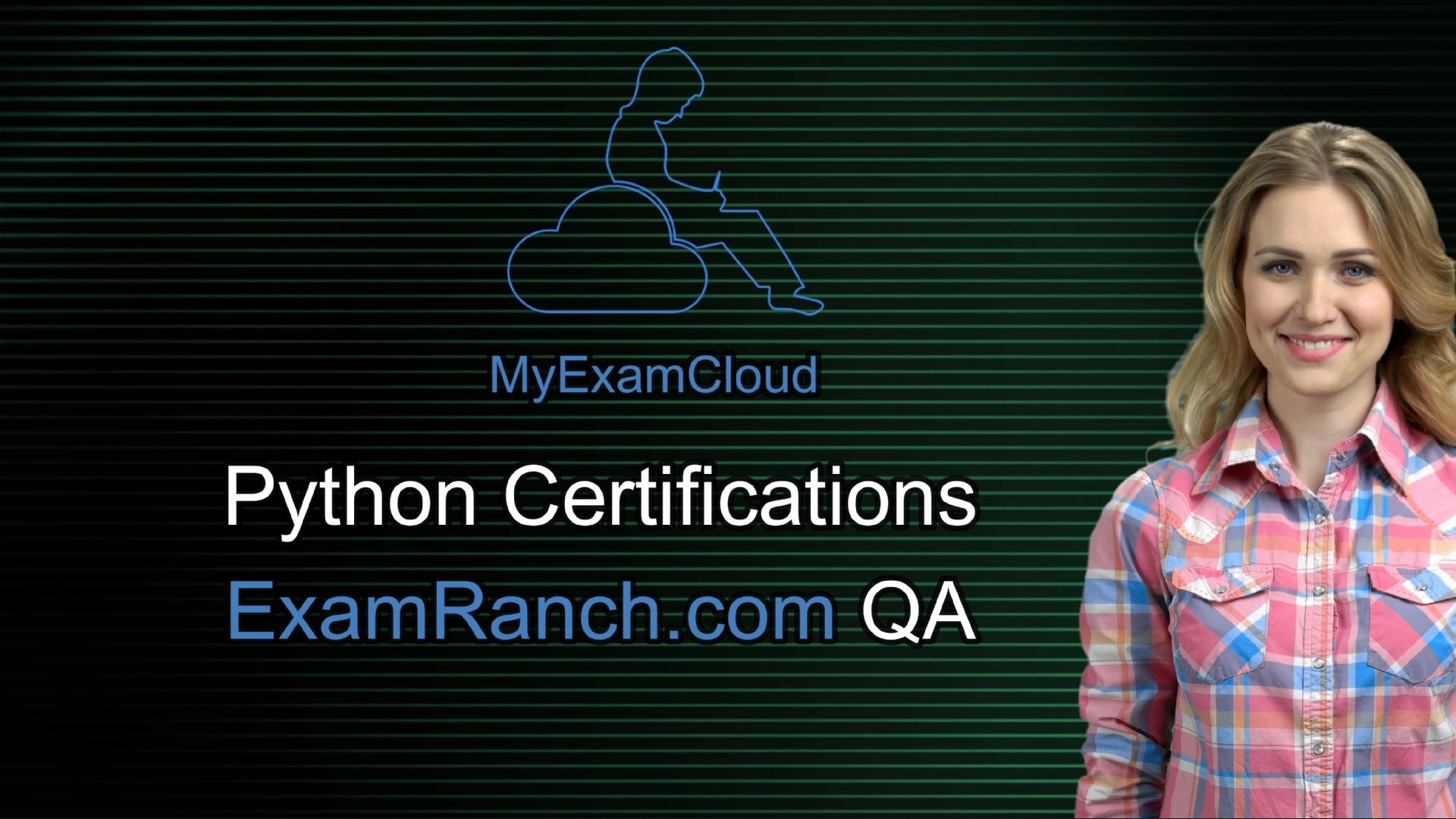How to Achieve PCEP Certification?
Myexamcloud 9 p.
Answered 2 years agoThe Python Institute offers the PCEP certification, a professional credential that measures your ability to complete coding tasks related to Python programming basics. Passing this exam equips you with the essential skills required for entry-level Python programming. If you are considering taking this certification exam, it is crucial to prepare thoroughly.
Before beginning the prep course for the PCEP, familiarize yourself with the syllabus. The syllabus covers four main areas:
1. Introduction to Python and Computer Programming
2. Data Types, Variables, Basic Input/Output Operations, and Basic Operations
3. Boolean Values, Conditional Execution, Loops, Lists, Logical and Bitwise Operations
4. Functions, Tuples, Dictionaries, and Data Processing
Setting personal goals as a part of the preparation process is beneficial. These goals will give you a sense of purpose and motivation to push through when you feel overwhelmed. Remember that learning Python is a continuous journey, and it is essential to find a balance between pushing yourself and taking breaks. Mental fatigue can hinder your ability to retain information, so it is essential to take breaks and recharge your mind.
As someone with previous experience in Python, my goal was to solidify my understanding of the fundamentals. I also wanted to improve my problem-solving skills, specifically with coding challenges and technical assessments. Ultimately, I wanted you to come out of the course feeling confident abilities to handle coding tasks and implement algorithms.
My recommendation is to set a two-week timeline for preparation before taking the exam. Within this timeline, I suggest spending the first week going through all the material in the Free Python Essentials Part I Course. Use the second week to go back and review concepts that need more practice. This approach allows for flexibility in case other priorities arise. Taking breaks after studying for a while helps prevent mental fatigue. I recommend going for a walk or engaging in physical activity to refresh your mind.
While going through the Python Essentials course, take brief notes on the key takeaways at the end of each section. These notes will be helpful when reviewing for the exam. Once you have completed all the modules and passed all the quizzes and tests, identify the areas that need more practice. For example, if you performed poorly on the list processing and functions sections, focus on these topics in more detail.
After completing the course, it is time to apply what you have learned by working on a project. I recommend coding along with a tic-tac-toe project as it allows you to see the concepts put together in a functioning matter. It is also empowering and a great way to contribute to an open-source project. If the project feels overwhelming, you can save it for after passing the exam.
After completing the course and working on a project, it is time to take some practice exams. I found the PCEP Practice Tests by MyExamCloud beneficial as it tests your knowledge and helps identify areas that need more practice. I suggest taking all exams to get exposed to different variations of questions. Make note of the questions you get wrong and review the explanations provided.
In conclusion, practice is crucial in preparing for the PCEP certification exam. Find fun and creative ways to practice Python, and research project ideas that will allow you to apply your skills. With the right mindset, determination, and practice, clearing the PCEP certification is achievable.
 ExamRanch
ExamRanch
